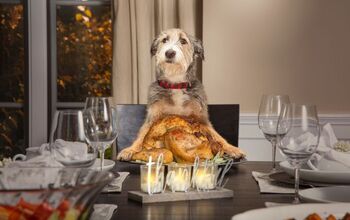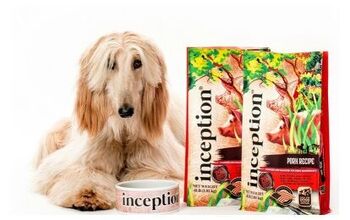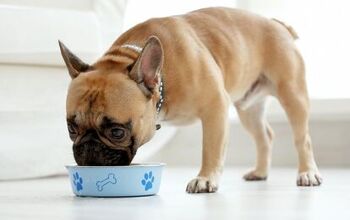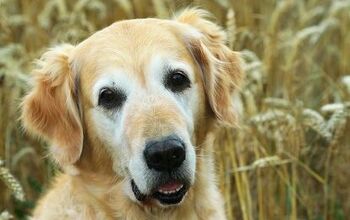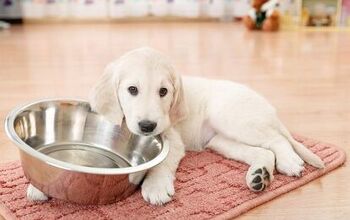What Are The Risks of Raw Dog Food?

Imagine this: You’re scrolling through social media, and you see a picture of a happy, healthy dog feasting on a raw meal that looks fresher than what you had for dinner last night. The caption talks about how raw food is “natural” and “primal,” and you start wondering - is this the best choice for your furry friend or just some new fad? While raw diets, often called BARF (Biologically Appropriate Raw Food) or RMBD (Raw Meat-Based Diet), have gained popularity, it’s important to consider the risks before making the switch.
Raw diets might seem like the ultimate way to connect your dog with their ancestral roots, but they come with significant concerns that every responsible pet owner should understand. Let’s take a closer look at some of the downsides and risks of this popular diet.
The Risk of Harmful Bacteria
Raw meat may be a dog’s ancestral diet, but it often harbors harmful bacteria such as E. Coli, Salmonella, and Listeria. These pathogens can cause serious illness not just in dogs but also in humans. Even if your pet appears healthy, they can shed these bacteria in their waste, posing risks to your household, particularly to children, elderly individuals, or anyone with a compromised immune system.
Nutritional Imbalances Are Common
A balanced diet is crucial for your dog’s health, but achieving this with raw food alone can be challenging. Raw diets often lack essential nutrients like calcium, phosphorus, and certain vitamins, or they contain these nutrients in unbalanced ratios. Over time, these deficiencies or excesses can lead to brittle bones, organ damage, or growth problems in puppies. Crafting a truly balanced raw diet requires expert knowledge and careful planning.
Raw meat can contain parasites such as Toxoplasma gondii and Neospora caninum, which can cause severe illnesses in dogs. While freezing meat at appropriate temperatures can reduce this risk, it doesn’t eliminate it entirely. Raw bones, often included in such diets, pose their own dangers. Bones can splinter, leading to choking, internal injuries, or digestive blockages. Additionally, chewing on bones can result in broken teeth and expensive veterinary care.
Raw diets are not ideal for every dog. Puppies, pregnant or lactating dogs, and those with pre-existing health issues or compromised immune systems are particularly vulnerable to the risks of raw food. For these dogs, the potential harms often outweigh any perceived benefits. While consulting a vet before making any drastic dietary switches would be a must for any dog, it’s even more important for dogs with any health issues - you can never know how their body will react to such a major change in nutritional habits.
While some pet owners swear by raw feeding, many veterinary professionals remain skeptical. Organizations like the American Veterinary Medical Association (AVMA) and the Centers for Disease Control and Prevention (CDC) advise against raw diets due to health risks for both pets and humans.
If you’re drawn to the idea of feeding your dog a natural diet, consider preparing balanced, homemade meals using vet-approved recipes. This approach allows you to control ingredient quality and ensure your dog gets the nutrients they need without the risks associated with raw feeding. Supplementing a high-quality commercial diet with fresh, whole foods like cooked lean meats or vegetables is another way to provide variety and nutrition.
If you’re still considering a raw diet, thorough research is essential. Read detailed guides, seek advice from veterinary nutritionists, and, most importantly, have an honest conversation with your veterinarian. They can help you weigh the pros and cons based on your dog’s specific needs and health status.
Conclusion: Informed Choices for a Healthier Pet
Feeding your dog is one of the most personal decisions you’ll make as a pet owner. While raw diets may have their appeal, they come with significant risks that shouldn’t be ignored. By understanding these risks and exploring safer alternatives like homemade meals or enhanced commercial diets, you can make informed choices that support your dog’s health and happiness. After all, the journey to a pet’s health starts with a thoughtful owner.

A proud mama to seven dogs and ten cats, Angela spends her days writing for her fellow pet parents and pampering her furballs, all of whom are rescues. When she's not gushing over her adorable cats or playing with her dogs, she can be found curled up with a good fantasy book.
More by Angela Vuckovic








